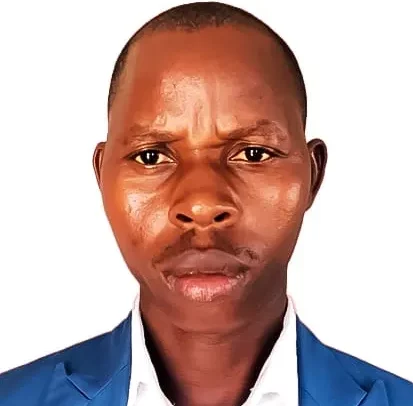The writer
Like many Ghanaians, including colleagues in the media fraternity, and the family and friends of the late Ahmed Suale, I can’t help but ask: was it all for politics?
This is not what we were promised. The Attorney General and Minister for Justice, Dr. Dominic Ayine, must offer further clarification on the recent discontinuance of the murder case involving the late journalist.
It appears that nolle prosequi is increasingly being used as a tool—or even a license—for injustice. The Attorney General must, therefore, exercise moderation and utmost caution when withdrawing cases of public interest, particularly those involving journalists, as the media is widely regarded as the fourth estate of government.
As a concerned citizen of Ghana, I find it deeply troubling that the government appears to be on a spree of truncating cases of national importance, allowing suspected criminals to walk free. Such actions risk tarnishing the image of our justice system and eroding public trust and confidence in national security and accountability.
While the motives behind the Attorney General’s decision to discontinue investigations and prosecutions in the murder of investigative journalist Ahmed Suale remain unclear, this development seems to embolden crime and endanger the lives of journalists who risk everything to uncover the truth.
This is not a call for the Attorney General to prosecute innocent individuals. However, the recent discontinuance of the case, which allows a prime suspect to go, sets a dangerous precedent. The Attorney General must rise above political considerations and ensure that justice is done, not merely seen to be done.
Regrettably, could it be that karma and reality have now caught up with the new government—one that, while in opposition during the 2024 electioneering campaign, promised to pursue justice for Ahmed Suale and others?
Then-candidate, and now President John Dramani Mahama pledged to the nation his commitment to investigate and prosecute perpetrators of heinous crimes, including Suale’s murder and other corruption-related offences.
So, what has changed? The filing of nolle prosequi in court to end criminal cases without trial undermines the principles of fair hearing and judicial independence. It weakens the very foundations of Ghana’s criminal justice system and raises serious concerns about political interference in the administration of justice.
The Attorney General’s decision to enter nolle prosequi in the Ahmed Suale case is not only an indictment of President Mahama’s much-touted ‘judiciary resetting’ agenda, but it also signals the dangerous normalisation of a “commit crime, wait a while, and walk free” culture.
Perhaps the Attorney General should be reminded of this statement by then-presidential candidate John Dramani Mahama during his campaign in Ahmed Suale’s hometown:
“I want to draw your attention to something. This is the hometown of Ahmed Suale, the journalist who was murdered in cold blood and whose killers have still not faced justice. I want to assure the people of this constituency and the family that when I’m elected, I will use all the powers available to the state to find and prosecute those who killed him.”
What has happened to that solemn promise, Mr. President? Was it merely political rhetoric to win votes? The Attorney General’s decision to withdraw this murder case feels nothing short of a betrayal, of public trust, of justice, and of the principles of press freedom.
The immediate family, friends, the good people of Wulensi, and colleagues of the late Ahmed Suale continue to grapple with the traumatic pain caused by his untimely death.
They had placed their hopes in President Mahama following his solemn promise to seek justice. However, as the saying goes, justice delayed is justice denied. We continue to pursue justice for our colleague, and the Attorney General must act decisively to ensure justice for our brother.
Journalism is not a crime. As journalists, we set national agenda that promote development, expose corruption, and hold duty bearers accountable. We give voice to the voiceless and shed light on the struggles of the marginalised. Why then should the pursuit of truth make us targets of hatred or victims of violence?
Ghana must not allow nolle prosequi to become a convenient escape route for justice. The lives of journalists, and indeed, the integrity of our justice system, depend on it.
It is surprising that the learned Attorney General and Minister of Justice, Dr. Dominic Ayine, a man who has for years been known as an advocate for human rights and press freedom, would take an action that undermines the very foundation of journalism in this country. Such a move is deeply troubling and must not be tolerated in any form.
This development should serve as a wake-up call to all duty bearers, including the Ghana Journalists Association (GJA), the Private Newspapers and Online News Publishers Association of Ghana (PRINPAG), the Ghana Independent Broadcasters Association (GIBA), the Media Foundation for West Africa (MFWA), and other media allies. It is imperative that they urgently unite and demand that the Attorney General reopen the murder case of the late Ahmed Suale.
The writer is a Journalist, Public Relations Practitioner, and Communications Specialist. Email: paulnyojah30@gmail.com
By Paul Nyojah Dalafu


